
 |
|
|
Vegetables
Volume 59 Number 10 Date 07/10/2014 BACTERIAL WILT - Reports indicate this insect-transmitted disease is developing on cucumbers in Dane and Sauk counties. The vectors are the striped and spotted cucumber beetles. Control consists of eliminating the beetles---either by hand or with the use of an insecticide such as rotenone or carbaryl---and removing symptomatic plants to reduce inoculum sources. Even small numbers of infected beetles can devastate a planting and must be eliminated before disease symptoms appear. Treatment is warranted for infestations of 4-5 beetles per 50 plants. SQUASH VINE BORER - Moths are still very active around pumpkins, zucchini and squash in home gardens. Growers of these vine crops should continue checking susceptible plants for flat, brown eggs deposited at the base of stems as long as the moths are present. Control is required as soon as the eggs are noticed to prevent the larvae from boring into the vines. Gardeners may remove the eggs by hand, cover the plants with netting, and destroy the adults. Carbaryl applied to the plant bases as a weekly spray during the three-week egg laying period is also an effective form of chemical control. LATE BLIGHT - To date there have been no confirmed cases of late blight in the state, but disease severity value accumulations have exceeded the late blight risk threshold in the Antigo, Grand Marsh, Hancock and Plover areas, indicating conditions are favorable for disease development. The University of Wisconsin-Extension recommends that growers begin preventative fungicide applications to protect their tomatoes and potatoes. SQUASH BUG - These insects are feeding on cucurbit crops from Grant to Monroe County, causing symptoms similar to bacterial wilt. Unlike bacterial wilt, affected plants usually recover once the squash bugs have been controlled. According to the UW-Extension, insecticide options for commercial plantings include synthetic pyrethroids (e.g. Brigade, Mustang, Pounce, Warrior, etc.) or neonicotinoids (Assail, Belay, Scorpion, Endigo). Organic growers should use directed applications of pyrethrum (PyGanic) or the pre-mix with azadirachtin (Azera). An average of one egg mass per plant when plants are flowering is recommended as the basis for initiating treatment. For home gardens, soapy water or carbaryl treatment provides some control but reapplication is usually required. -- Krista Hamilton, DATCP Entomologist 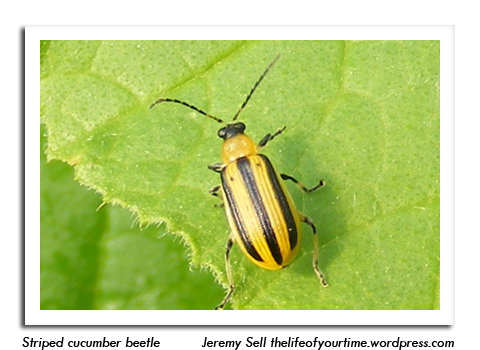
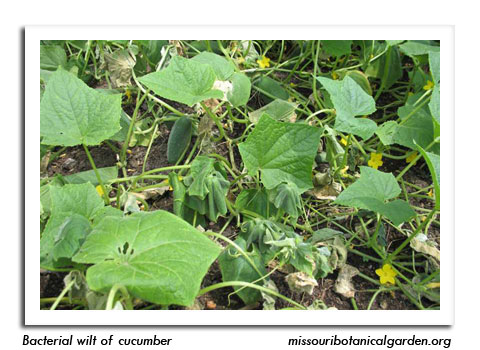
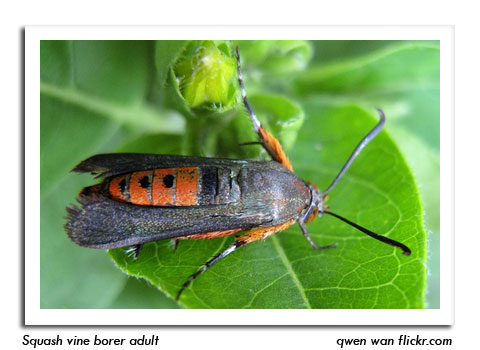
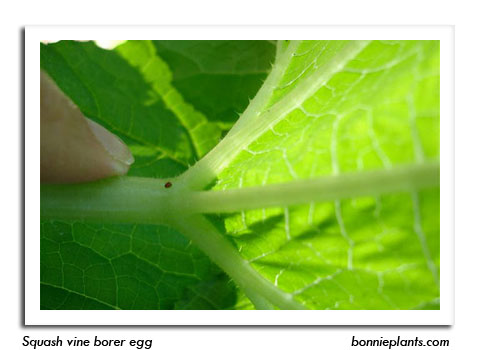
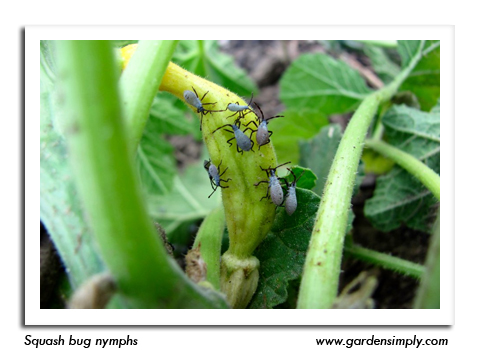
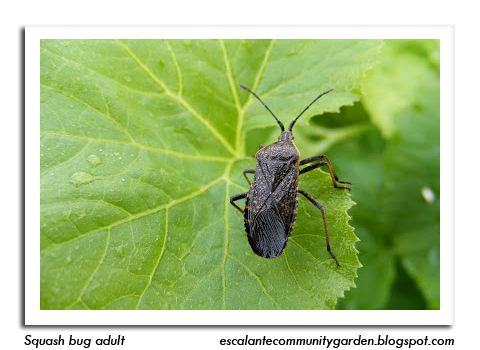
|
|
|